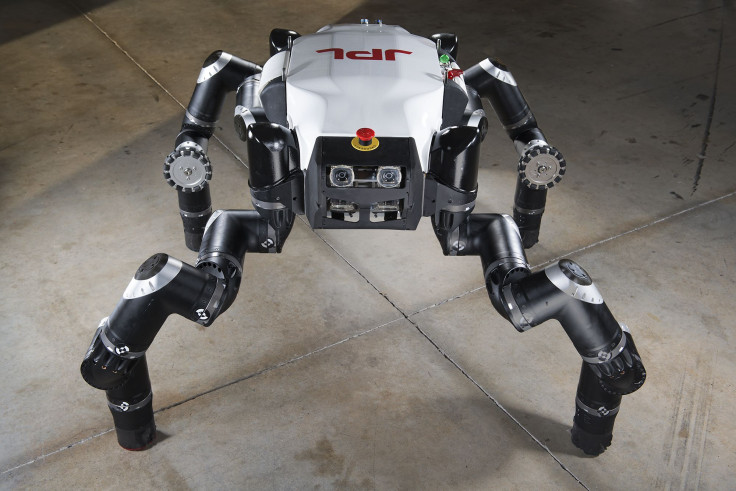Meet RoboSimian: Jet Propulsion Lab’s Robot Set To Compete At DARPA Robotics Challenge Finals
RoboSimian is getting ready to compete at the DARPA Robotics Challenge Finals 2014 following a fifth-place finish at last month’s DARPA Robotics Challenge Trials. NASA’s Jet Propulsion Laboratory will get funding to work on RoboSimian, better known as Clyde, and will compete for a grand prize of $2 million.

After the 2011 Fukushima nuclear meltdown in Japan, the Defense Advanced Research Project Agency established the Robotics Challenge as a way to test and develop robots that work in disaster environments.
In December, 15 teams competed in the DARPA Robotics Challenge 2013 held at the Miami Speedway, located in Homestead, Fla. The teams competed in eight tasks, earning up to four points for each event. Each task recreates different scenarios that a robot would encounter in a disaster environment, such as clearing debris, navigating over uneven terrain and climbing ladders.
Most of the teams developed humanoid robots, with two legs, for the challenge, with RoboSimian being one of the few exceptions. While the design choice may have been unconventional, it was one that the robotics program at JPL was familiar with. Looking at previous tasks from JPL, design elements found in the RoboSimian could be found in other robots, including the emphasis on four usable limbs. The “Spider-Bot” from 2002 as well as the Autonomous Walking Inspection and Maintenance Robot and the crab-like robotic Limbed Excursion Mobile Utility Robot from the In Space Robotic Assembly and Maintenance task, reveal robot designs that are less humanoid and lower to the ground.
The JPL robot used its four limbs to complete the various tasks, earning 14 points in the DRC 2013. Google’s recently acquired SCHAFT robot won the trials, earning a total of 27 points. The eight teams will receive funding from DARPA to compete in the finals, scheduled for later in 2014, and will compete against other non-funded teams.
© Copyright IBTimes 2024. All rights reserved.












